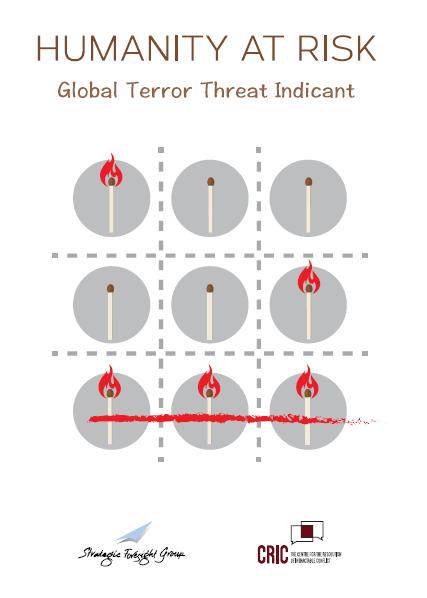Did Zenawi keep Ethiopia from falling apart?
|
|
August 2012
By
|
The Ethiopian Prime Minister Meles Zenawi was reported to have died at the age of 57 by Ethiopian TV and cited by many international news sources on Tuesday, August 21, 2012. Zenawi was last seen at the G20 summit in Mexico held in June 2012. His rather unusual and unexpected absence from the African Union (AU) Summit, held in the Ethiopian capital of Addis Ababa in July 2012, spurred speculation en masse all over the world. The news of his death brought an end to a two-month long speculation over his health status and his and his family whereabouts. Some suggested that Zenawi�€™s illness was a farce and questioned whether he and other top Ethiopian politicos had all gone into hiding together. Most importantly, the government and its observers have feverishly discussed the aftermath of Zenawi�€™s sudden departure from the political scene and the possible inability of his coalition government to hold on in Addis without him.
Zenawi�€™s party, the Tigray People�€™s Liberation Front (TPLF) has led a coalition government since 1991 when it overthrew the Mengistu Haile Mariam-ruled military government. TPLF has since earned the ire of several opposition groups within the Ethiopian political diaspora which is intensely divided along regional, ethnic and religious lines. The opposition has alleged that their democratic and peaceful aims were brutally repressed along with the media under the purview of the Zenawi-led government. Zenawi has unreservedly used the military, police and legal systems to suppress rebellion as a means to keep Ethiopia from being divided along ethnic lines.
Over the last two month while Zenawi was seeking medical treatment in Brussels according to unconfirmed reports, the political diaspora of Ethiopia has stirred up the media expressing doubts on whether the government will continue after Zenawi. Dejection has been expressed over the perceivably inevitable continuation of the status quo, stating Zenawi made enough constitutional amendments to circumvent a change of power in Addis. Some believe that the coalition government will survive but it will be weak which will be horrific for an already volatile Ethiopia. The response to Zenawi�€™s absence from the political sphere was not restricted to words. The previously quelled Muslim protests have seen an upsurge over the last month. Some media sources state that Zenawi may have died on Friday but the news was kept from being made public to avoid the emboldening of the protests on Eid-ul-Fitr on Sunday.
Zenawi�€™s two decade plus rule required him to deal with many critical security and development issues and was thus the subject of a lot of international attention and contention. Zenawi was considered to be USA�€™s man on the ground in the fight against Al Shabaab in Somalia. Zenawi was credited for Ethiopia�€™s staggering economic growth rate of 11% in recent years. Ethiopia has also been influential in facilitating the AU-led negotiations of the Sudan-South Sudan oil tariff in August 2012. His development policies depending on foreign direct investment and international aid and the country�€™s human rights records were the subjects of highly contentious debates as was the strengthening of Ethiopia�€™s bilateral relations with China.
Hailemariam Desalegn, the deputy Prime Minister and Foreign Minister of Ethiopia, has been holding the seams of the government in Zenawi�€™s absence, ensuring the progress of Sudan-South Sudan negotiations and calling out for closer cooperation with China to develop the country�€™s garguantum energy potential. Desalegn will assume the Prime Ministerial seat and head the Ethiopian Council of Ministers as per the stipulation of the constitution of Ethiopia. He belongs to the Southern Nations, Nationalities and People�€™s Region party, which has been denounced by opposition groups as considerably less politically influential, groups which will now be making their moves to take over Addis.
Given this backdrop, Zenawi�€™s successor Desalegn and the Ethiopian government face the following challenges in the days ahead:
- Ensuring a peaceful transition of the government. There is the possibility of a battle for Addis between the TGLF and the stronger of the opposition groups such as the ONLF, which could be long and violent, destabilizing the eastern and southern parts of the country.
- It remains to be seen whether or not Desalegn�€™s southern origins will serve to act as the glue between the Tigray government and the rest of the Ethiopian regional parties.
- Desalegn will face the formidable task of balancing regional politics such as managing tense relations between Sudan, South Sudan as well as Ethiopia�€™s own tense relationship with Egypt. He will have to ensure that the newly completed Ethiopia-Sudan power grid project and commercial agricultural projects go on smoothly to continue receiving international revenues, finances and aid, the very lifeblood of Ethiopia.
- Desalegn is a water engineer by profession and has been lauded as a deputy but considered too weak to manage a nation as volatile as Ethiopia. However, his background may prove useful in helping him address the question of the Nile waters along with his newly appointed Egyptian counterpart, Qandil who incidentally is also a water engineer. President Morsi and Qandil have promised Egypt�€™s long due attention to Ethiopia and other Nile riparian states. It remains to be seen how two water engineer PMs will approach the question of the Nile waters.
The success achieved in these scenarios will determine the extent to which the Ethiopian government will be able to uphold its national, regional and international commitments in a post-Zenawi Ethiopia. Indeed, there will be those that will attribute success to the fact that Zenawi no longer rules Ethiopia. However, if the country�€™s governance falls apart on these critical issues and political restiveness accelerates despite Zenawi�€™s absence from Addis, then Zenawi�€™s highly questionable methods will be remembered as the �€˜glue�€™ that kept Ethiopia from falling apart.
Related Publications
Related latest News
Related Conferences Reports
-

P5 Experts Roundtable on Nuclear Risk Reduction
Download:Geneva Roundtable Report
-

Roundtable on Global Security and Catastrophic Risks
Download:Report on RT revise





